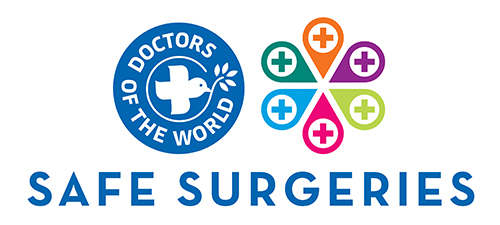Gastric Cancer
Gastric cancer, commonly known as stomach cancer, occurs when malignant cells form in the lining of the stomach. It's a disease that can develop slowly and, in its early stages, often remains asymptomatic. Due to its late presentation, it can be challenging to diagnose gastric cancer early, making education and awareness crucial for improving outcomes.
Types of Gastric Cancer
Gastric cancer is primarily categorized into several types based on the type of cells where the cancer begins:
- Adenocarcinomas
- These make up about 90-95% of all stomach cancers and start in the glandular cells of the stomach lining.
- Lymphomas
- These are cancers of the immune system tissue that are sometimes found in the stomach wall.
- Gastrointestinal stromal tumors (GISTs):
- Originating from a type of stomach cell called interstitial cells of Cajal, some of these tumors can be benign.
- Carcinoid tumors:
- These start in hormone-producing cells of the stomach. Most of these tumors do not spread to other organs.
Symptoms of Gastric Cancer
In the early stages, gastric cancer rarely causes symptoms. This makes it hard to catch early. Symptoms often appear once the cancer is advanced and may include:
- Persistent indigestion and stomach discomfort
- A bloated feeling after eating, even after a small meal
- Mild nausea
- Loss of appetite
- Heartburn
- Persistent vomiting
- Stomach pain, especially in the upper or middle abdomen
- Blood in the stool or black, tar-like stools
- Unintentional weight loss
- Fatigue
- Feeling full after eating small amounts of food (early satiety)
Risk factors
Several factors may increase the risk of developing gastric cancer:
- Helicobacter pylori infection
- A common bacterial infection that causes ulcers and inflammation and is a significant risk factor for gastric cancer.
- Diet:
- These are cancers of the immune system tissue that are sometimes found in the stomach wall.
- Gastrointestinal stromal tumors (GISTs):
- Originating from a type of stomach cell called interstitial cells of Cajal, some of these tumors can be benign.
- Carcinoid tumors:
- A diet high in salty and smoked foods, and low in fruits and vegetables
- Smoking:
- Increases the risk of gastric cancer, particularly near the esophagus.
- Family history
- Having close relatives who have had gastric cancer
- Pernicious anemia and long-term stomach inflammation.
- Previous stomach surgery.
- Epstein-Barr virus:
- Associated with some subtypes of gastric cancer.
- Occupational exposure
- Workers in the coal, metal, and rubber industries may have increased risk.
Diagnosis
Diagnosing gastric cancer typically involves several steps:
- Physical examination and medical history:
- Checking for general signs of health and disease.
- Upper endoscopy:
- A small camera is inserted through the throat to examine the stomach and take biopsy samples.
- Imaging tests:
- Such as CT scans, MRI, and PET scans, to examine the stomach and surrounding organs.
Treatment Options
Treatment for gastric cancer depends on the stage of the cancer, the patient's overall health, and personal preferences:
- Surgery:
- To remove part or all of the stomach and nearby lymph nodes.
- Chemotherapy:
- Often given before (neoadjuvant) or after (adjuvant) surgery to help shrink the tumor and kill any remaining cancer cells.
- Radiation therapy:
- Sometimes used in conjunction with chemotherapy, especially if the cancer is advanced or to relieve symptoms.
- Targeted therapy:
- Drugs that specifically target cancer characteristics, such as HER2-positive gastric cancer.
- Immunotherapy:
- For advanced gastric cancer that hasn't responded to other treatments.
Promoting awareness of gastric cancer's symptoms and risk factors is critical for early detection. For those diagnosed, advanced treatment options and supportive care can significantly improve quality of life and survival outcomes.







